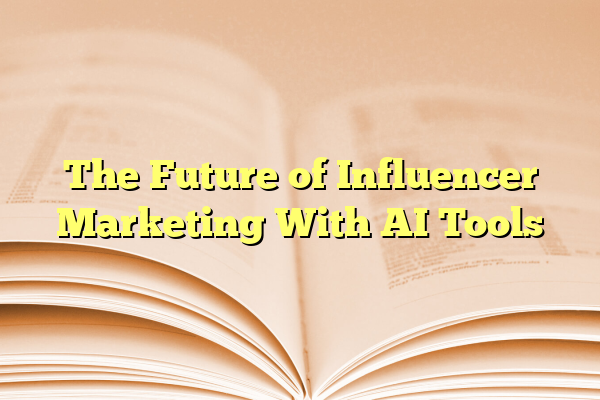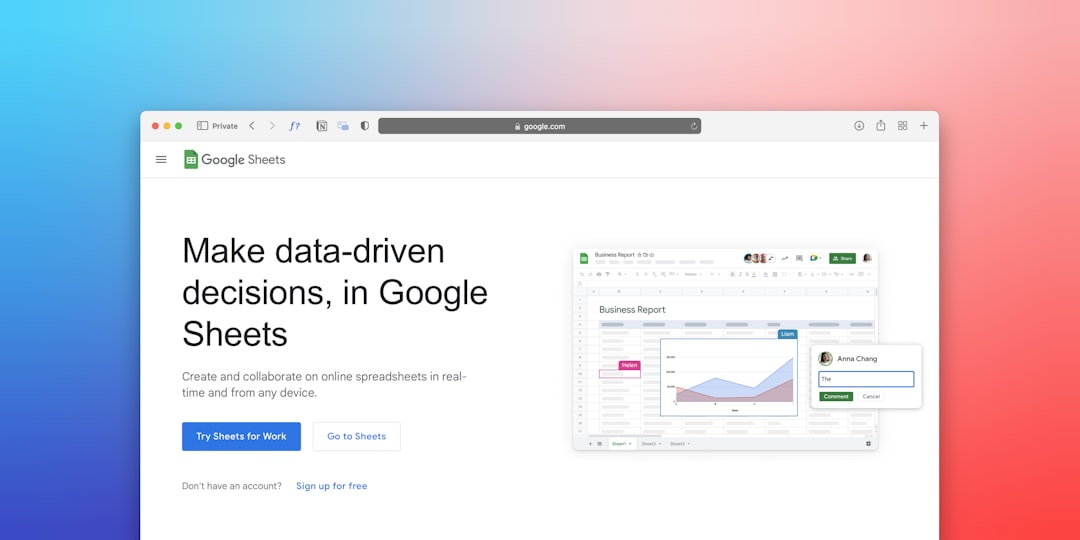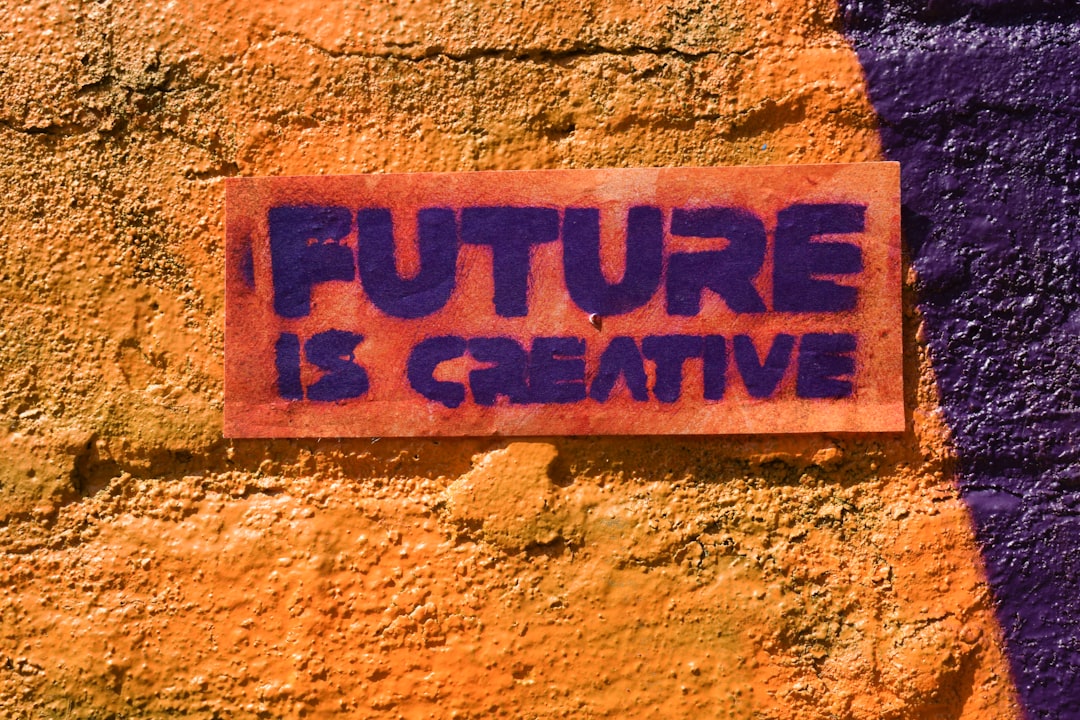
The Future of Influencer Marketing With AI Tools
In recent years, influencer marketing has transformed from a fringe strategy into a cornerstone of digital branding. As marketers continue to seek more targeted, scalable, and cost-effective ways to reach audiences, the integration of artificial intelligence (AI) tools is reshaping the influencer ecosystem. The rise of AI in influencer marketing is not only fueling efficiency but also enabling hyper-personalized campaigns that deliver measurable ROI. As we look toward the future, AI is poised to redefine how brands identify, engage, and collaborate with influencers.
Contents
The Evolution of Influencer Marketing
Influencer marketing has come a long way from celebrities posting promotional content on social media. With the rise of niche content creators and micro-influencers, brands have found that authenticity and audience trust matter more than follower counts. However, the rapid expansion of the influencer pool has also ushered in complexities—making it harder for marketers to find the right voices and accurately measure performance. This is where AI tools come in.
How AI is Transforming Influencer Marketing
Artificial intelligence brings a level of precision and automation to influencer marketing that was previously unattainable. Some of the primary ways AI is revolutionizing the space include:
- Influencer Discovery: AI-powered platforms can sift through millions of social media profiles to identify influencers that align with a brand’s goals, values, and target audience.
- Audience Analysis: AI can analyze an influencer’s audience demographics, engagement rates, and content reach to ensure campaign compatibility.
- Campaign Automation: From scheduling posts to tracking mentions and engagement, AI streamlines campaign execution.
- Sentiment Analysis: Natural language processing (NLP) allows AI to evaluate audience reactions, enabling brands to gauge sentiment and brand perception in real time.
- Performance Forecasting: By analyzing historical data, AI tools can predict how well a campaign or influencer will perform, reducing guesswork and maximizing ROI.

AI-Powered Influencer Platforms
Tools such as CreatorIQ, Julius, and Upfluence exemplify how AI platforms are replacing manual processes. These platforms use machine learning to continuously learn from previous campaigns, deliver real-time insights, and refine influencer recommendations. Some even include fraud detection algorithms to help brands avoid fake influencers with purchased followers.
Many AI platforms also feature influencer scoring systems that rate influencers based not just on reach but on engagement quality, audience authenticity, and prior campaign success. This granular level of insight helps marketers make data-driven decisions and move away from vanity metrics like follower count.
Hyper-Personalized Campaigns
Another major benefit of AI in influencer marketing is the ability to create hyper-personalized campaigns. Instead of one-size-fits-all messaging, AI can suggest content topics, hashtags, and even optimal posting times based on audience behavior. This personalization doesn’t just benefit brands—it also helps influencers maintain their authenticity by aligning brand content with their natural voice and aesthetic.
Additionally, AI can facilitate real-time A/B testing, rapidly determining which content types and influencer styles are resonating most with specific audience demographics. This enables brands to iteratively optimize campaigns on the fly.
The Rise of Virtual Influencers
One of the most futuristic applications of AI in influencer marketing is the creation of virtual influencers. These are AI-generated characters, often animated or hyper-realistic, that amass large followings on platforms like Instagram and TikTok. Examples like Lil Miquela or Imma showcase how virtual influencers can represent brands just as effectively—sometimes more so—than their human counterparts.
While virtual influencers eliminate risks like controversies or availability issues, they also come with unique ethical considerations. Consumers are increasingly savvy and may demand transparency when interacting with these synthetic personalities.

Challenges and Considerations
Despite its tremendous potential, the adoption of AI in influencer marketing is not without challenges. Key concerns include:
- Data Privacy: With increased use of data analytics comes growing scrutiny on how personal data is collected and used.
- Over-Automation: Relying too heavily on algorithms may strip campaigns of the human touch that makes influencer content relatable.
- Bias in AI Models: If not properly monitored, AI systems may reflect existing biases, resulting in a homogeneous selection of influencers and content.
Brands must balance automation with authenticity and ensure transparency with both influencers and audiences.
Future Forecast: What Lies Ahead
Looking forward, AI is expected to continue scaling and refining influencer marketing in several ways:
- Voice and Video Recognition: Advanced AI models will be able to analyze spoken content in videos and podcasts for deeper brand integration analytics.
- Predictive Analytics: Real-time predictive models will allow campaigns to adapt mid-flight, reallocating budget to high-performing influencers dynamically.
- Emotion AI: Tools will move beyond sentiment analysis to detect nuanced emotional responses, enabling emotionally intelligent interactions between influencers and audiences.
Ultimately, AI won’t replace the creative instincts and relationships that drive influencer success—but it will enhance them. Human creativity paired with machine intelligence is the winning formula for future-proof influencer marketing.

Conclusion
As influencer marketing becomes more data-driven and outcome-focused, AI will no longer be a luxury—it will be a necessity. From discovering the perfect influencer to personalizing campaigns at scale, artificial intelligence empowers brands to navigate this complex landscape with confidence, clarity, and creativity. By embracing AI tools ethically and strategically, marketers can unlock new levels of impact and redefine what success looks like in the influencer arena.
Frequently Asked Questions
-
Q: How does AI help in finding the right influencers?
A: AI tools analyze vast datasets—including engagement rates, audience demographics, and content style—to recommend influencers that align closely with a brand’s goals. -
Q: Can AI replace human influencer managers?
A: While AI can automate many tasks, human oversight is still crucial for maintaining relationships, negotiating contracts, and adding creative strategy. -
Q: Are virtual influencers really effective?
A: Yes, virtual influencers have proven effective thanks to their consistency, customizability, and novelty. However, consumer trust and transparency remain critical. -
Q: What are the risks of using AI in influencer marketing?
A: Risks include data privacy concerns, potential algorithm biases, and over-reliance on automation which may reduce the authenticity of campaigns. -
Q: How will AI change influencer marketing in the next 5 years?
A: AI will enable more predictive, personalized, and adaptive campaigns, refining influencer targeting and campaign performance analysis in real time.
